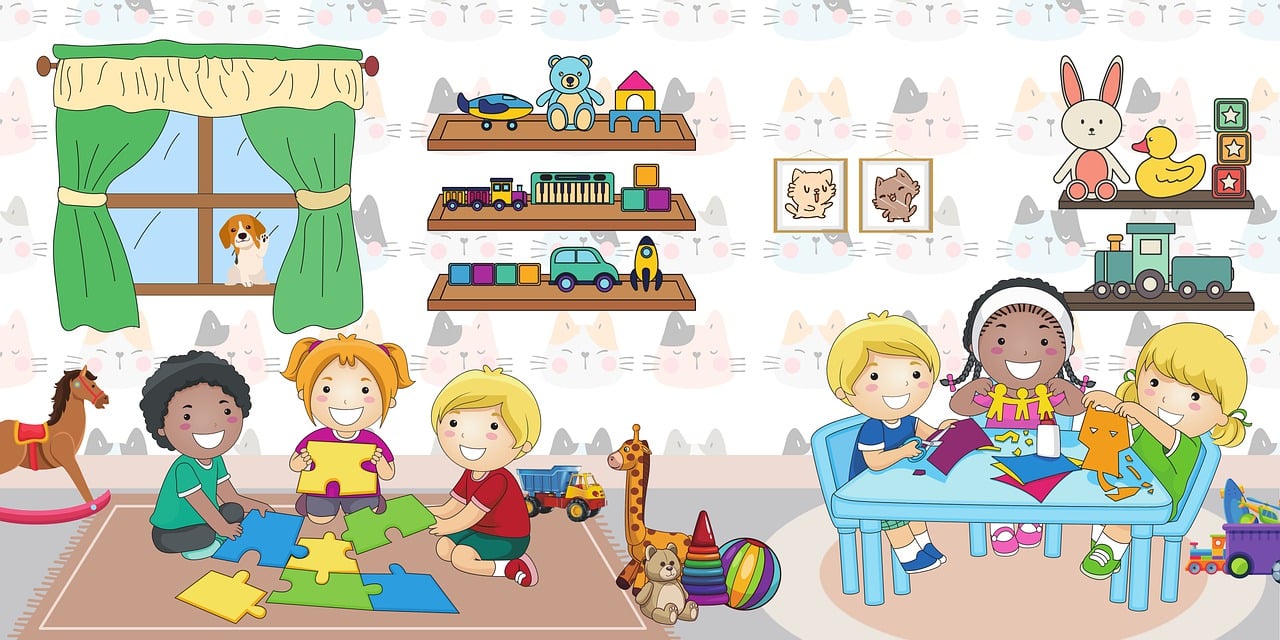Positive Parenting Tips for Preschoolers
(Ages 3-5)
Positive parenting tips for preschoolers (ages 3-5) can significantly impact your child’s development. The CDC recommends limiting screen time to one hour per day of quality programming. Talk to your child about the importance of whole grains and minimizing added sugars to support their health and development. Encouraging your child to play with other children helps build essential social skills as your child becomes more independent.
What Are Effective Parenting Tips for Preschoolers?
Effective parenting for preschoolers involves a blend of parenting tips guidance and freedom. You should give your child opportunities to let your preschooler choose activities, such as visiting a library or bookstore. This helps with social development and allows them to learn the value of sharing and friendship. Incorporating age-appropriate play equipment can enhance their skills such as naming colors.
How to help your toddlers develop good social skills?
To support your preschooler in developing good social skills, focus on parenting preschoolers with a clear and consistent approach. During the preschool years (ages 3–5 years old), help children learn to express themselves using complete sentences. You can tell your child to ask about the things around them, which will encourage communication.
Understanding Developmental Milestones for 3-5 Year Olds
Understanding developmental milestones for 3-5 year olds is essential as your child grows. During this stage, children should be able to express themselves in complete sentences and using good language skills by speaking. A balanced parenting style that includes appropriate discipline can help to shape their personality and their own ways of thinking and moving.
How can parents support their child’s developmental milestones?
Supporting your child’s developmental milestones is crucial for their growth. As a parent, parenting a preschooler means being aware of both physical and emotional needs. Limit screen time for your child and encourage outdoor play, explaining and showing the behavior that you expect. A child psychologist can provide guidance if you’re concerned about your preschooler’s development.
How to Nurture Healthy Bodies in Preschoolers?
To nurture healthy bodies in preschoolers, children ages three to five need plenty of playtime and nutritious food. Encourage your child whenever possible to engage in physical activities, as these help children reach milestones. Also, foster a love for books by taking time to read together as a family, using the correct words and phrases to enhance their vocabulary.
What is the importance of physical activity for preschoolers?
Physical activity is essential for preschool-aged children as it promotes healthy growth and development. Engaging in activities allows a child knows their body better and improves motor skills. For instance, when children run after stray balls or play in the street, they learn to navigate their environment safely. It’s crucial to teach them to stay away from the street and around any body of water.
How to provide your child with a balanced diet?
Providing your child with a balanced diet involves several ways you can help them develop healthy eating habits. Include a variety of fruits, vegetables, whole grains, and lean proteins in their meals. Ensure that their car seat with a harness is properly used, as it will help keep them safe while you discuss food choices during outings.
Child Safety First: Tips for Parents of Preschoolers

Providing your child with a balanced diet involves several ways you can help them develop healthy eating habits. Start by introducing a variety of foods, ensuring they have fruits, vegetables, and whole grains in their meals. Engage in imaginative play where they can learn about food and nutrition through fun activities.
What safety measures should parents take at home?
To ensure safety during early childhood, parents should establish a secure environment that promotes child development. This includes providing age-appropriate toys and regularly checking that they are within the height or weight limit allowed for safe usage. Additionally, teaching children not to play near the street or run after stray animals will help them understand potential dangers and help your child feel secure.
How to be cautious when letting your child ride a bike?
When allowing your child to ride a bike, it’s essential to consider their safety. Ensure they meet the top height or weight limit for the bike, which helps prevent accidents.
Finally, remember that safety gear is crucial until your child reaches the top height of their bike’s safety guidelines, which can take a few years lay ahead.



